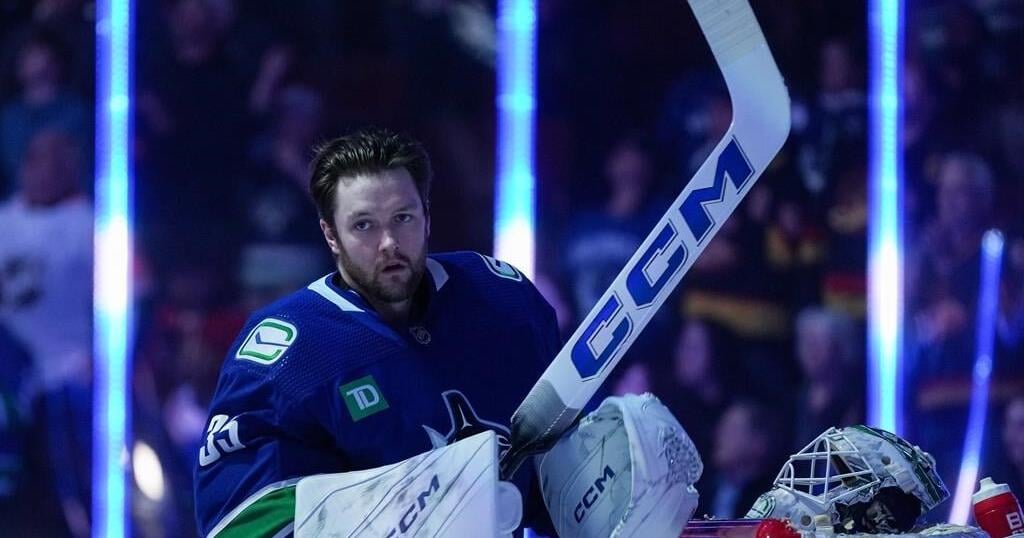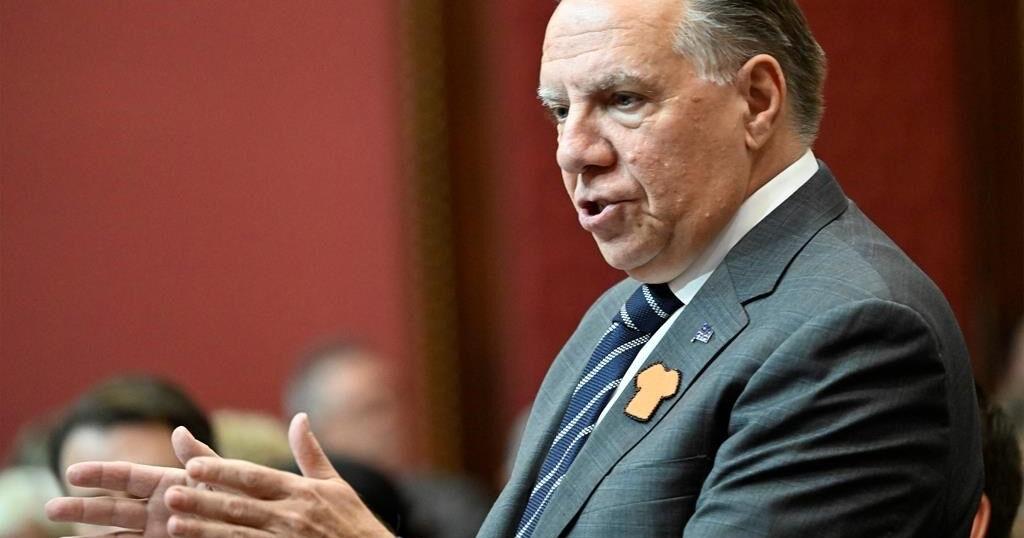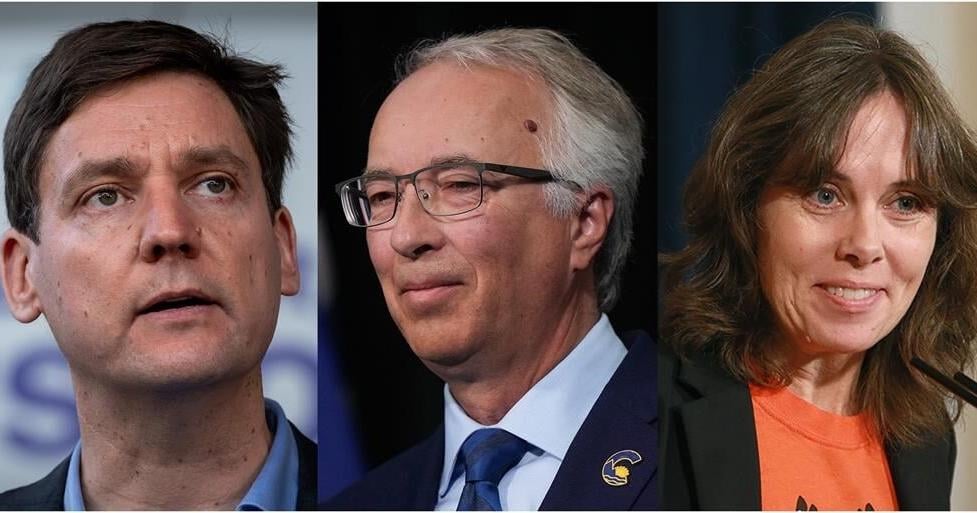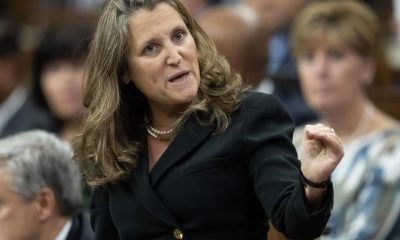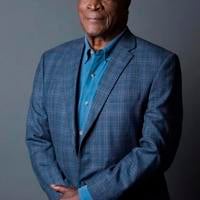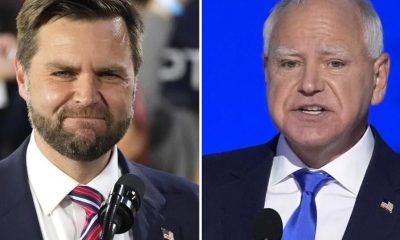VANCOUVER – British Columbia’s party leaders jousted over affordability, health care, conspiracy theories and the opioid crisis in their first and only radio debate of the province’s election campaign.
The debate on Vancouver station CKNW brought NDP Leader David Eby, B.C. Conservative Leader John Rustad and Green Party Leader Sonia Furstenau into the same room for the first time on the campaign trail ahead of the Oct. 19 vote.
The fractious and freewheeling hour-long debate hosted by Mike Smyth was conducted with open microphones and saw the leaders frequently speaking over each other.
Rustad repeatedly accused Eby of telling “outright lies” about the Conservatives, while Furstenau said her rivals were ignoring root causes of B.C.’s affordability and opioid crises, in favour of handouts and quick fixes.
The debate started civilly enough with a question on affordability, with Eby saying cost-of-living issues had been “challenging” for households and that the NDP’s proposed middle-class tax cut was aimed at driving down costs.
Rustad agreed that affordability was the top issue in the campaign, and asked “why suddenly now” was Eby talking about tax cuts, while Furstenau said it was “fascinating” that neither Eby nor Rustad wanted to talk about the factors that drove unaffordability in the province, including “financialized” housing and a “backwards-looking” fossil fuel industry.
But Eby swiftly tried to focus on Rustad’s candidate slate, repeatedly citing a social media post by Chris Sankey, the B.C. Conservatives’ candidate in North Coast — Haidi Gwaii, that suggested COVID-19 vaccines “cause Aids.”
“When you can’t even bring yourself to say that that’s problematic, that you don’t agree with that, then how are you gonna run a health care system?” Eby asked Rustad, calling the situation “incredibly bizarre.”
It was an apparent reference to a post last October on social media platform X in which Sankey mentioned a condition he called “Vaccine Acquired Immune Deficiency Syndrome.”
Eby asked whether Rustad agreed with Sankey that vaccines caused AIDS and whether Sankey would have a role in health policy.
Rustad responded by saying “I like how (Eby) attacks an Indigenous candidate” — Sankey being a member of the Tsimshian community of the Lax Kw’ Alaams band — and said that while B.C. faced a host of pressing issues “David Eby wants to go negative … because he can’t defend his record, he can’t defend what he’s doing.”
Furstenau said her own party was putting forward “serious candidates,” and that “there is a problem with candidates in the Conservative slate.”
She said the province needed people who did not use “Twitter and conspiracy theories” to guide their thinking.
When discussion turned to the opioid crisis, Rustad said the NDP’s policies of “safe supply and decriminalization have failed,” and the B.C. Conservatives would bring a “common sense approach” to the issue.
He said safe supply sites would be turned into “recovery intake sites,” and that under Eby, the government had become “one of the biggest drug dealers in the province.”
Eby agreed that while some people using drugs needed treatment and a way out of addiction, Rustad was inconsistent with his positions, telling different things to different people.
Furstenau said there needed to be a “war on poverty” and a continuum of care, instead of a singular focus on the “most severe” outcomes of the toxic drug crisis that has claimed more than 15,000 lives since the declaration of a public health emergency in B.C. in 2016.
The only televised debate of the B.C. election campaign will be held on Oct. 8.
The party leaders will be back together again later Wednesday at an event with the Greater Vancouver Board of Trade where they will speak with business leaders.
The leaders’ encounters come as Rustad has been told by a campaign working to end violence against women that organizers are withdrawing their permission for him to wear a moose hide pin meant to show support.
Moose Hide Campaign co-founder Raven Lacerte says in a letter that elected leaders have a unique level of responsibility to uphold basic standards of respect, “including respect for Indigenous Peoples and those along the gender continuum,” and that Rustad is “not upholding these standards.”
The Conservative campaign did not respond to a request for comment on the letter.
This report by The Canadian Press was first published Oct. 2, 2024.



